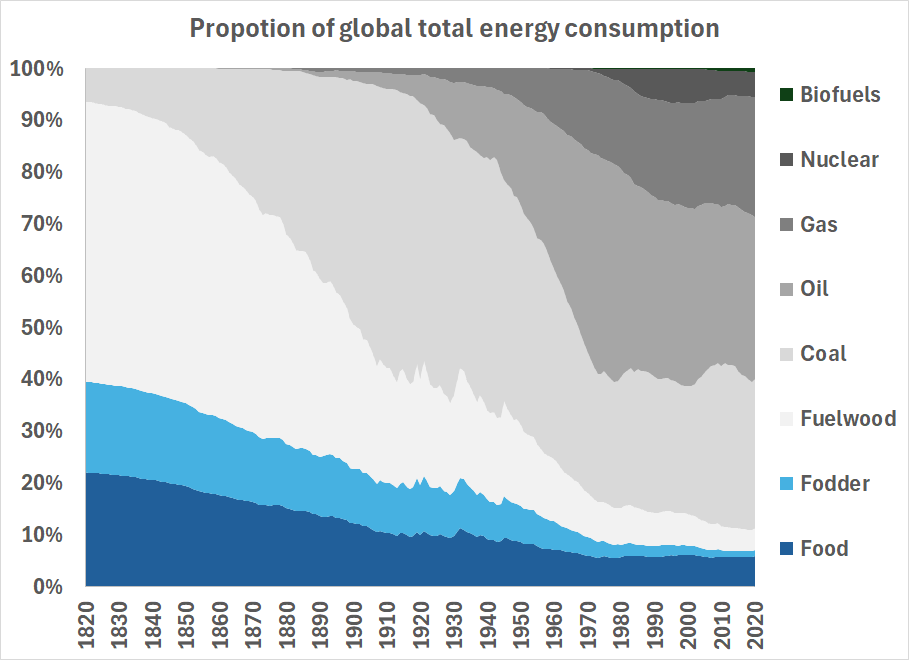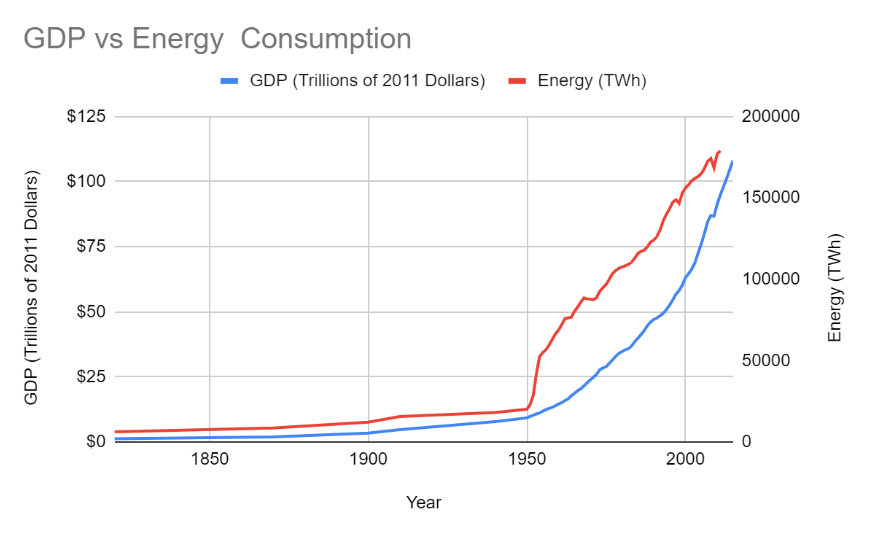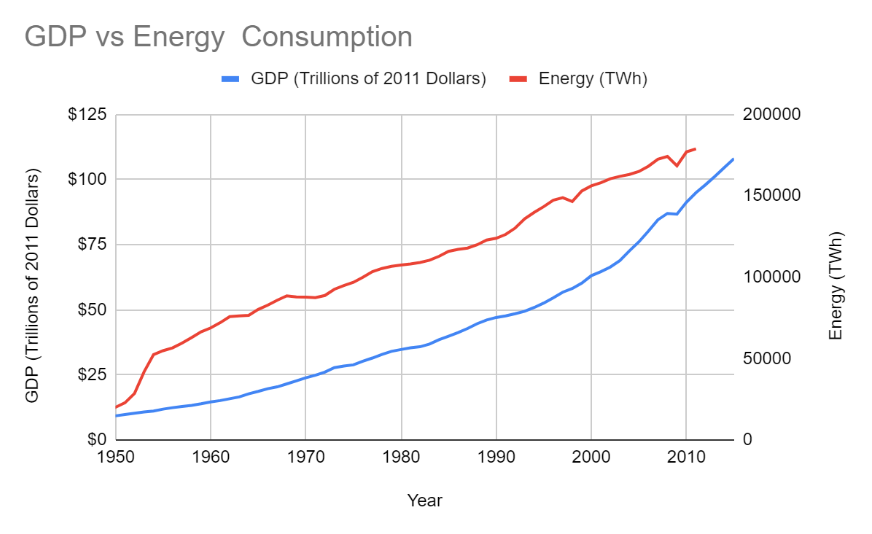All progress derives from technological improvement
To live in the 21st century, is to be the heir to a magnificent inheritance of millions of years of humanity’s struggle against nature. The fundamental reason that we live such comparatively good lives, compared with 90% of our roughly 100 billion human ancestors, is our mastery of technology. Where, technology is a precondition for our civilization, in comparison, governance structure is important mainly to the degree that it allows us to efficiently use technology. The invention of technologies gave us power over the environment to better fulfil all of our essential physiological needs: water, food, heat, clothes, shelter, sleep, urination, excretion. (With the exception of air, which takes care of itself). Our governance structure is only possible, and is a direct consequence of—the liberating effect of technology on our mode of life.
Human civilization transitioned from human muscle to animal muscle, to ’exogenous’ energy sources—most obvious symptom of the objective improvement in our well-being. Technology is the best tool to reduce the “worst possible misery for everyone”—a utilitarian yardstick for progress.
Before, the industrial revolution, everything, had to be done with the human hand, or moved by the human hand. The only way to understand this, is to go wild camping.

Long-term energy transitions (ourworldindata.org), organized here.
We should be marvel more often at the luxury which technology provides us. Every time you turn on a light-switch—note that you didn’t have to spend two weeks, last October, mashing whale fat into candles with your bare hands. Note that when you turn on an electric heater, you didn’t have to cut down a small tree. Every time you buy a new piece of clothing, you didn’t have to skin an animal. Almost every action you take in today’s world is thanks to the graph above. Almost nothing a modern human does is possible without this energy supply. From buying a pastry to crossing a an asphalt road to turning on either the water tap.
Everything we take for granted is fundamentally dependent on our use of external energy sources. This first allowed a much greater number of people to exist which created a sort of inevitable domination of pre-industrial societies in the same way that the agricultural revolution displaced the hunter-gatherer societies, and later allowed a transition from almost everyone being involved in the business of surviving (agriculture), to manufacturing, to ‘services’.
Most Americans’ great-great-great-grandparents, were farmers.
Presented like this, it is all so obvious, it is boring—we all have this tacit knowledge. But part of my coming-to-terms with this world, and understanding how it actually operates, has been to realize that this lens not the ‘conventional wisdom’ at all. When I finally began to understand the conversations being had on the radio, morning news, I began to understand that the population are almost exclusively preoccupied with the sense of feeling part of the governance structure. The true grand arc of history: technological improvement, has been replaced in the modern mind by the arc of ‘social progression’. To the degree that we do measure technological improvement, it is through the abstraction ’economic growth’, more specifically, the numerical measure of gross domestic product. Which is just that—an abstraction. The conventional wisdom is that wealth, is purely numerical and can be approximated with GDP. But the state of the physical environment around us is the true measure of our collective wealth and the best proxy for that is our energy consumption.
Regardless, something quite amazing happened to numerical and physical wealth in 1950.

References: World GDP over the last two millennia | Our World in Data), originally from: Maddison Project Database 2018 | University of Groningen
Energy Production and Consumption | Our World in Data, originally from: MALANIMA Database 2022 | Harvard University
Looking closer at this period, it does appear that energy growth with respect to GDP stopped became stagnant at around 1950, and has been declining since 2000. That-is, we expect to squeeze more GDP out of each unit of energy.

The state of our political conversation seems to assume that we evolved beyond our energetic needs, and that the real purpose of governance is about social issues. Technology is something which can take care of itself. In fact, we are experiencing a great stagnation in our technological development.
Why is our political conversation is now about social, rather than technological issues?